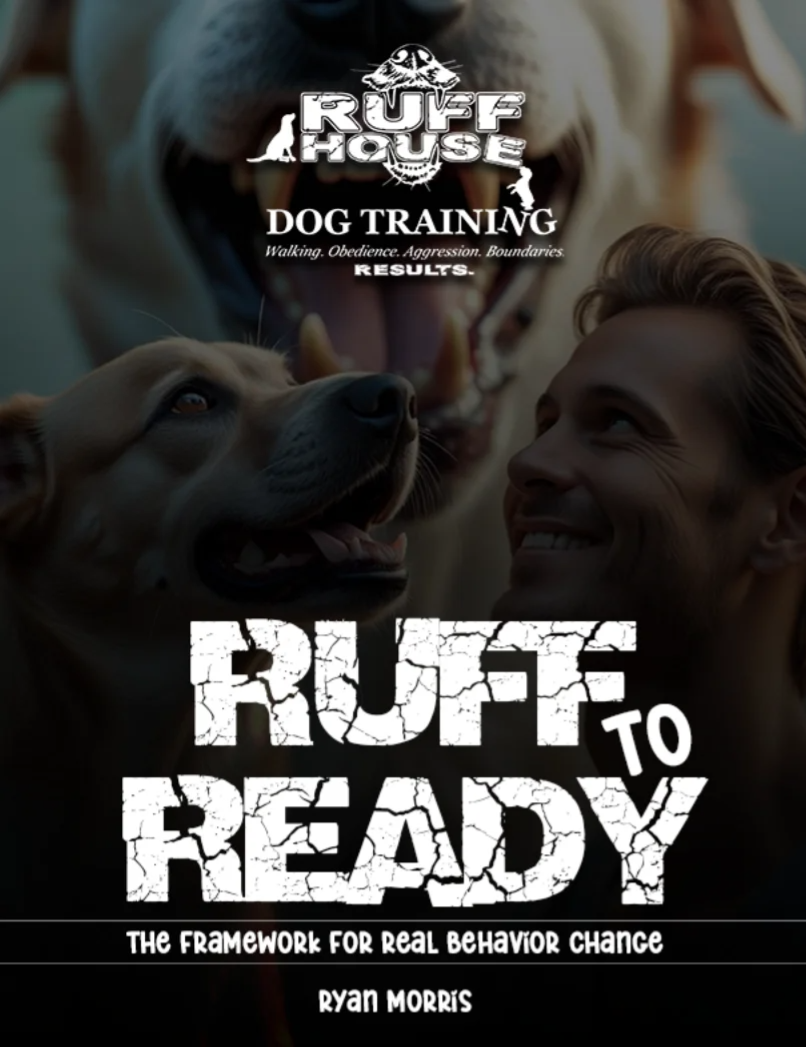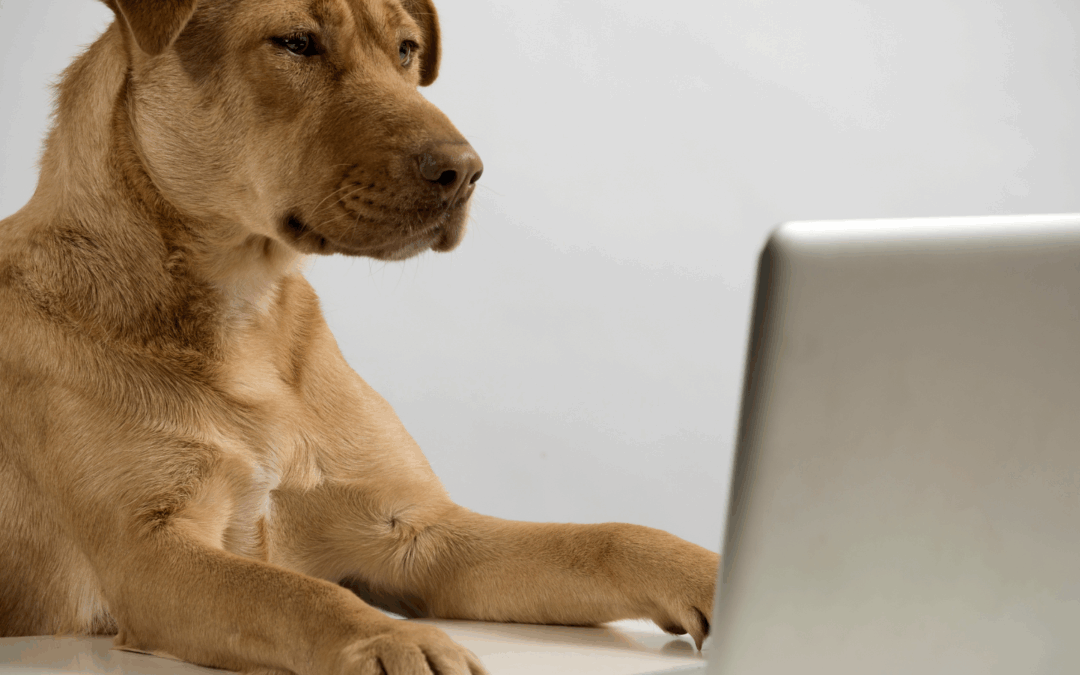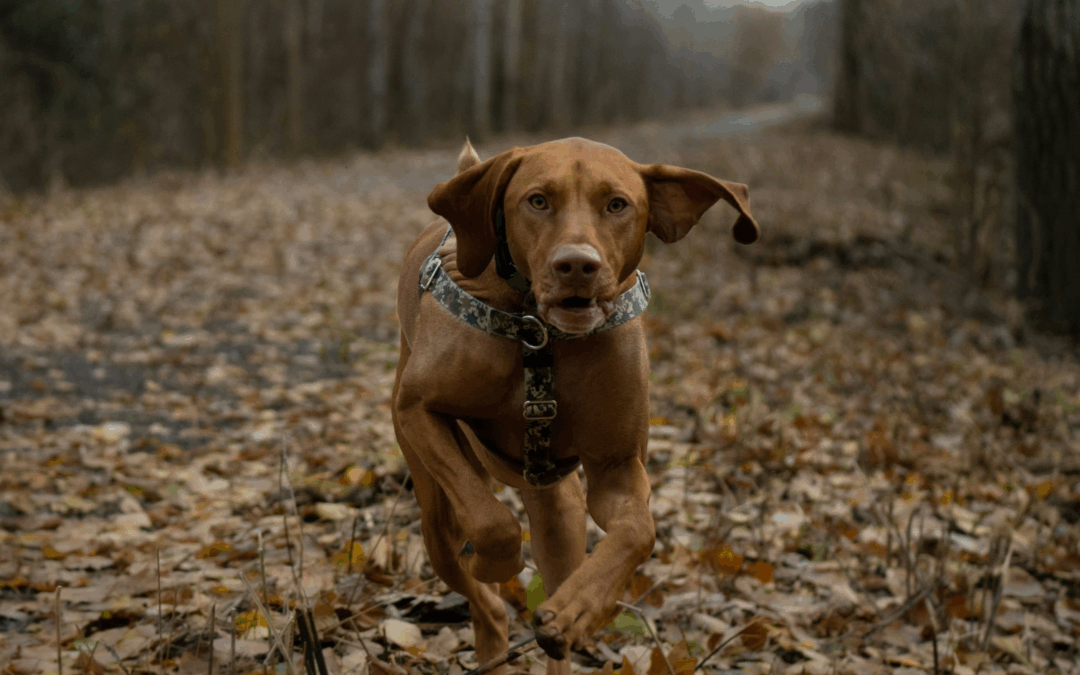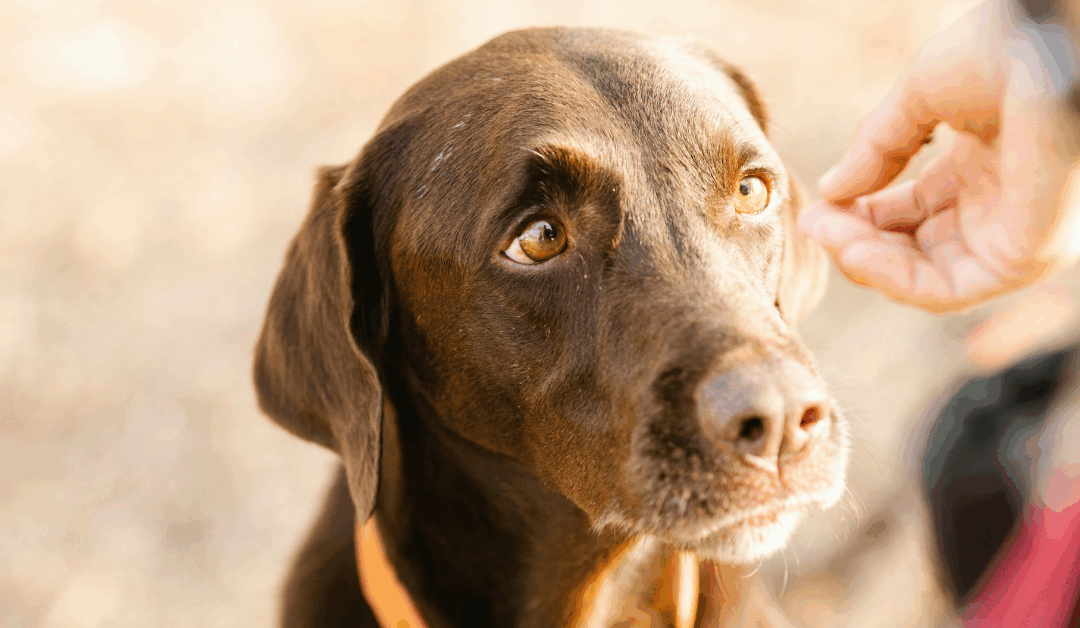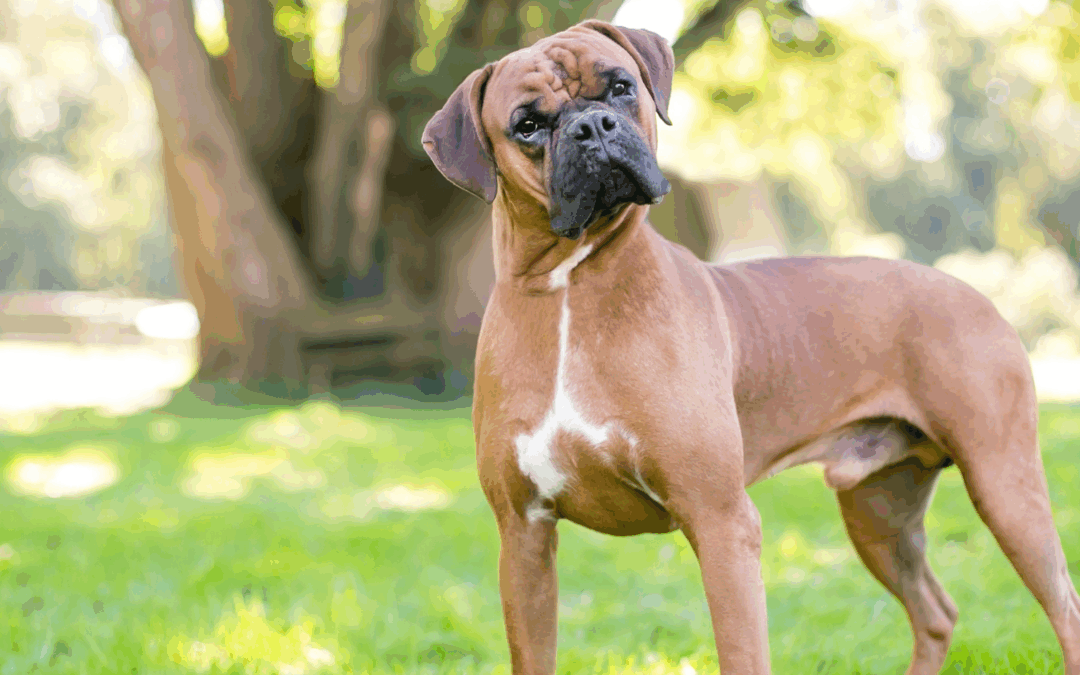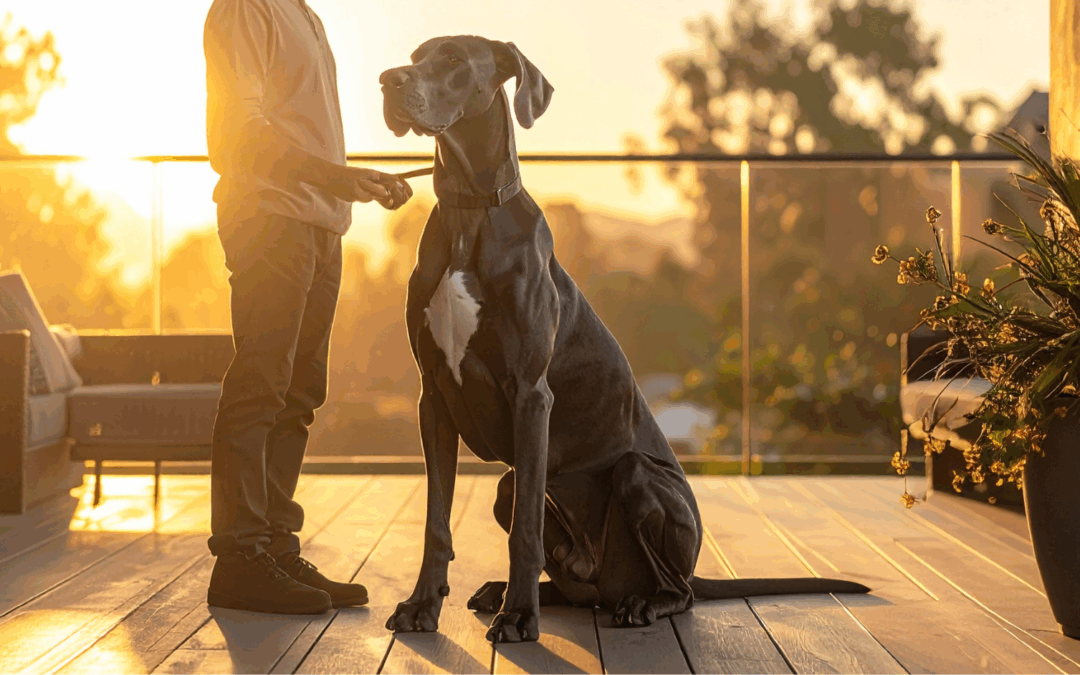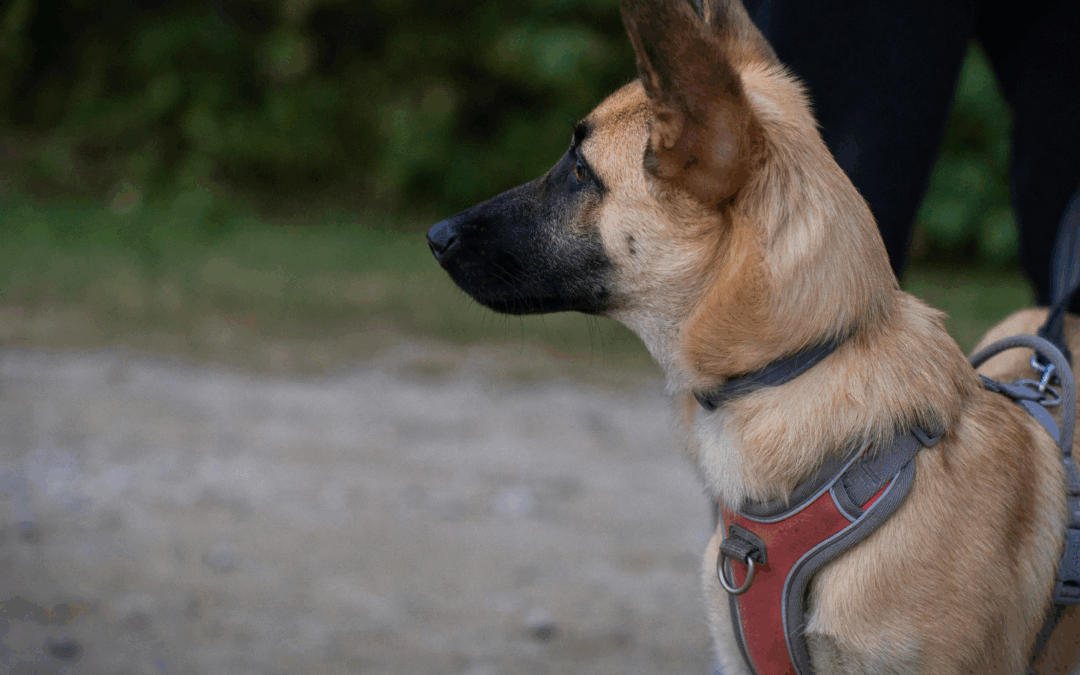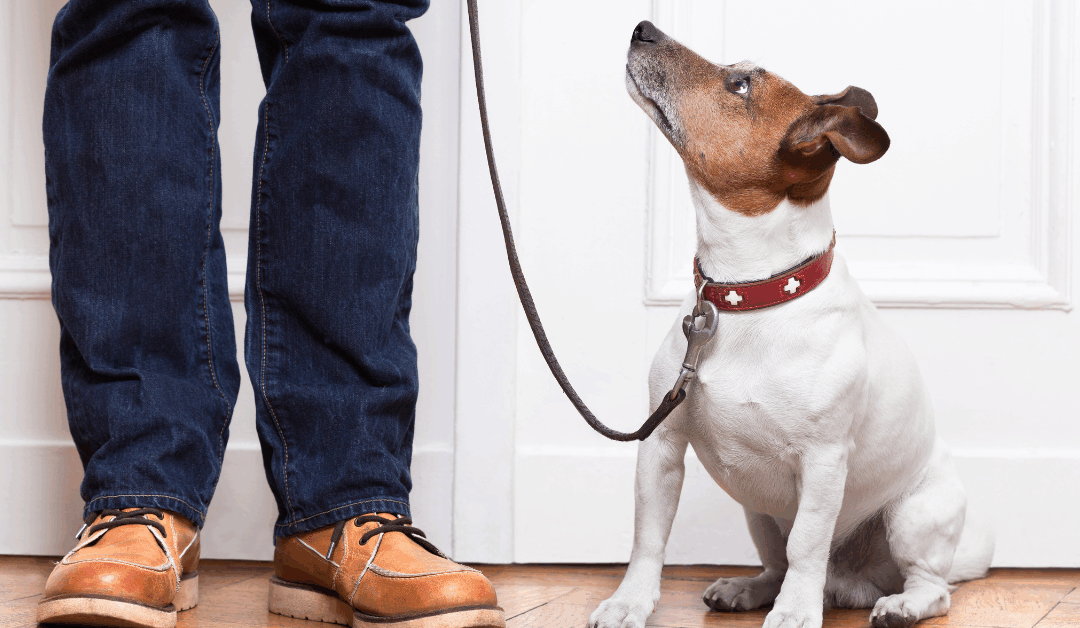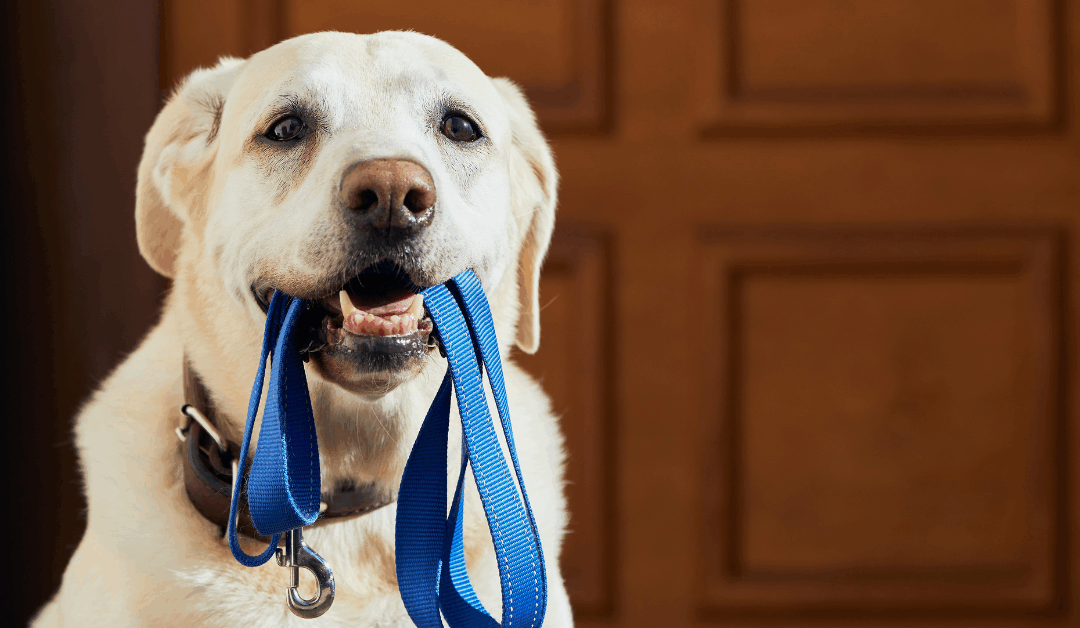Bringing home a new puppy fills your life with joy, excitement, and countless questions. What should you expect during those first few months? How can you support your furry friend’s growth? Understanding puppy stages helps new puppy parents navigate this rewarding journey with confidence.
From helpless newborn puppies who can’t even regulate their own body temperature to energetic adolescent dogs testing boundaries, each stage brings unique challenges and milestones. Your puppy’s development follows a predictable pattern, though the timing varies based on breed size and individual differences.
This comprehensive guide walks you through every stage of puppy development and your puppy’s life. You’ll learn what to expect, how to support your pup’s growth, and when to seek professional help. Whether you’re welcoming home an eight-week-old bundle of energy or preparing for your puppy’s teenage months, this roadmap ensures you’re ready for each phase.
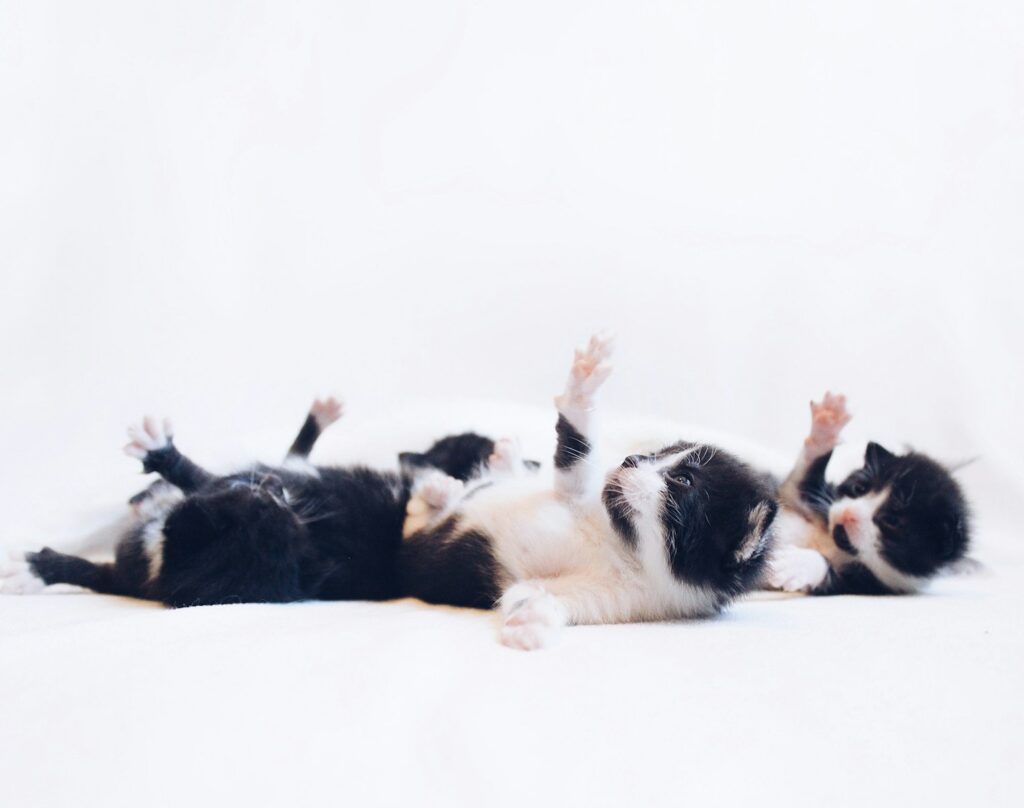
Photo by The Lucky Neko on Unsplash
Neonatal Period: The First Two Weeks (0-2 weeks)
The neonatal period represents your puppy’s most vulnerable stage. Neonatal puppies are born blind, deaf, and completely dependent on their mother and litter mates for survival. Their eyes remain closed, and they can’t regulate their own body temperature.
During this critical time, newborn puppies rely entirely on their mother’s milk for nutrition. They spend roughly 90% of their time sleeping and the remainder nursing. Their birth weight typically doubles by the end of this period, marking healthy growth.
What Happens During the Neonatal Stage
Puppies begin developing their sense of touch and taste immediately after birth. They instinctively crawl toward warmth and food sources. Their limited mobility keeps them close to the whelping box, where they feel secure with their mother and siblings.
Most puppies start showing basic reflexes like rooting (searching for milk) and suckling. They communicate through simple vocalizations when separated from their litter or when cold or hungry.
Supporting Neonatal and Newborn Puppies
If you’re caring for neonatal puppies, maintain a warm, quiet environment. The whelping box should stay between 85-90°F during the first week, gradually decreasing to 80°F by week two. Avoid handling puppies unnecessarily, as this can stress both mother and babies.
Monitor each puppy’s weight gain daily. Healthy puppies should gain weight consistently and feel warm and plump. Contact your veterinarian immediately if any puppy appears cold, loses weight, or seems lethargic.
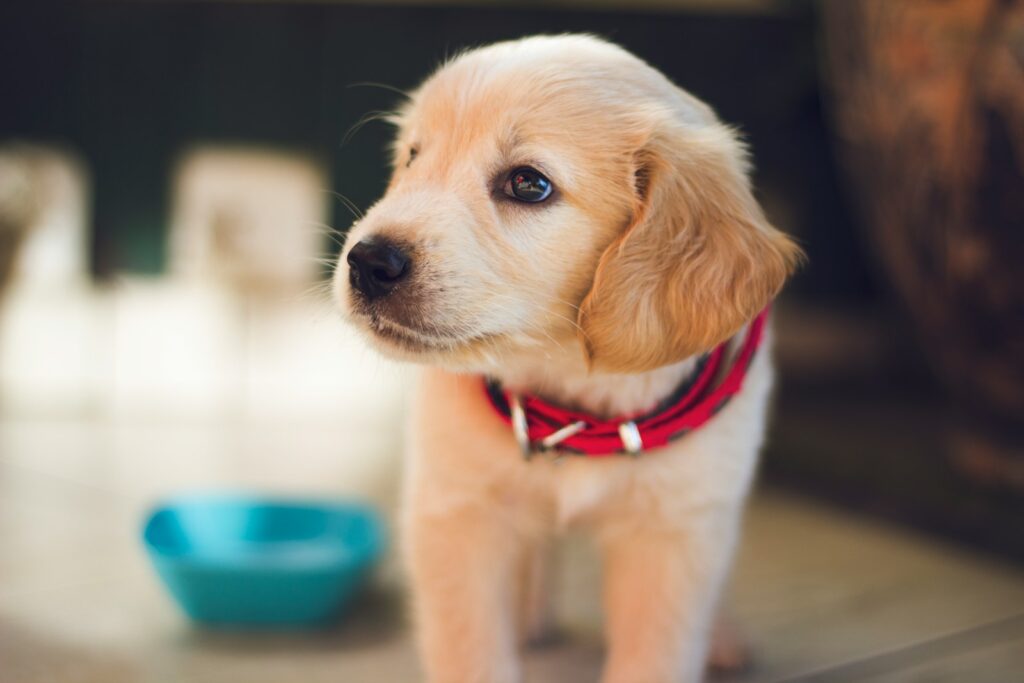
Photo by Berkay Gumustekin on Unsplash
Transitional Period: Opening Up to the World (2-4 weeks)
The transitional period marks dramatic changes in puppy development. Your puppy’s eyes begin opening around day 10-14, though vision remains blurry initially. Ear canals start opening around day 13-17, allowing puppies to hear their first sounds.
This stage sees remarkable physical development. Puppies begin standing on wobbly legs and taking their first tentative steps. They start developing better coordination and can eliminate without their mother’s stimulation.
Key Milestones in the Transitional Stage
Puppies begin eating solid food during this period, though they continue nursing. Their baby teeth (milk teeth) start emerging, allowing them to explore different textures. They also begin basic social interactions with littermates through gentle play and exploration.
Temperature regulation improves significantly. Puppies can maintain their body temperature more effectively, reducing their complete dependence on external heat sources.
How to Support Transitional Puppies
Introduce high-quality puppy food softened with warm water or puppy milk replacer. Start with small amounts, allowing puppies to explore and taste rather than expecting full meals. Keep the food easily accessible in shallow dishes.
Begin gentle handling to help puppies adjust to human touch. Short, calm interactions help prepare them for future socialization. Maintain a safe, clean environment as puppies become more mobile and curious about their surroundings.
Socialization Period: Building Lifelong Foundations (3-14 weeks)
The socialization period represents the most critical stage of puppy development for future behavior and temperament. Properly socialised puppies during this window typically become confident, well-adjusted adult dogs. This period splits into two phases: early socialization (3-5 weeks) and primary socialization (5-14 weeks).
During early socialization, puppies learn crucial lessons from their mother and littermates. They discover bite inhibition through play fighting and develop basic dog communication skills. This interaction teaches them appropriate social behavior with other dogs.
Primary Socialization: The Critical Window
The primary socialization period (5-14 weeks) offers the most important learning opportunities. Puppies’ brains remain highly adaptable, making them receptive to new experiences. Different exposures during this time shape their lifelong responses to people, animals, environments, and situations.
Most puppies go to their new homes around eight weeks, placing the responsibility for continued socialization on new puppy parents. This transition requires careful planning to maintain consistent skills and build a relationship while avoiding overwhelming your puppy.
Fear Periods and Sensitive Times
Puppies experience their first fear period around 8-11 weeks. During this time, they may become cautious about new experiences or previously accepted situations. Handle these reactions with patience and balanced reinforcement rather than forcing interactions.
A second fear period often occurs around 6-14 months, coinciding with adolescence. Understanding these phases helps you respond appropriately when your confident puppy suddenly seems worried about familiar things.
Maximizing Socialization Success
Expose your puppy to various people, including children, elderly individuals, and people wearing different clothing or using mobility aids. Introduce different environments like parks, busy streets, quiet neighborhoods, and various surfaces.
Controlled interactions with vaccinated, well-behaved adult dogs and other animals support healthy social development. Puppy training classes provide structured environments for socialization while teaching basic obedience skills.
Create positive associations with handling by gently touching paws, ears, mouth, and body. This preparation makes grooming, veterinary care, and daily handling easier throughout your dog’s life.
Juvenile Stage: Rapid Growth and Learning (3-6 months)
The juvenile stage brings explosive physical and mental development. Puppies grow rapidly, with large and giant breeds experiencing particularly dramatic size increases. Most dogs reach about 50% of their adult weight during this period.
Teething begins as baby teeth fall out and adult teeth emerge. This process causes discomfort, leading to increased chewing behavior. Providing appropriate outlets prevents destructive habits while soothing sore gums.
Training and Development Focus
Juvenile puppies possess increased attention spans and learning capacity. This makes it an ideal time for puppy training, including basic commands like sit, stay, come, and down. Positive training methods work best, using treats, praise, and play as rewards.
House training becomes more reliable as puppies develop better bladder and bowel control. Establish consistent routines for feeding, sleeping, and elimination to support this natural development.
Managing Juvenile Challenges
Energy levels peak during this stage, requiring adequate physical and mental stimulation. Under-exercised puppies often develop behavioral problems like excessive chewing, digging, or attention-seeking behaviors.
Crate training provides a safe space and supports house training efforts. Most puppies adapt well to crates when introduced gradually with positive associations.
The head trainer at Ruff House Dog Training, Ryan, states in his FREE e-book ‘Ruff To Ready’ that introducing the crate in a fair and gentle manner is more beneficial. They will discover that the crate represents freedom and tranquility rather than punishment.
Ryan employs balanced training techniques, and his freshly released e-book discusses how balanced training builds a stronger bond of trust between you and your dog. Mutual understanding between you and your dog will eventually lead to a happy, well-behaved dog and a satisfied dog owner. Contact us to learn more about how Ruff House Dog Training may help you and your dog!
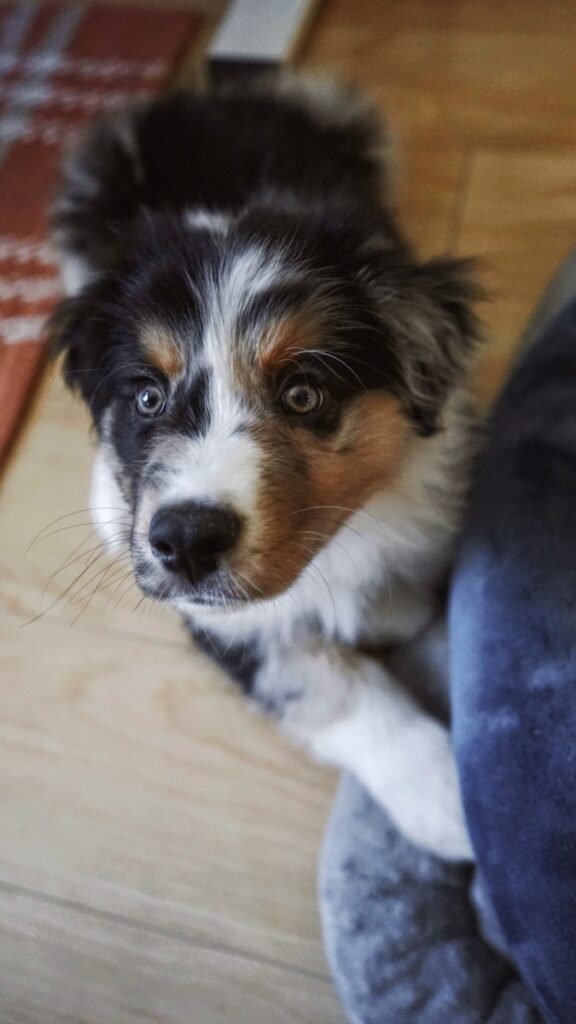
Photo by Erin Testone on Unsplash
Adolescent Stage: The Teenage Phase (6-18 months)
The adolescent stage tests every puppy parent’s patience. Like human teenagers, adolescent dogs and puppies continue to push boundaries, test rules, and sometimes seem to forget their training. This phase varies significantly between breeds, with small breeds maturing faster than large and giant breeds.
Sexual maturity occurs during this period, bringing hormonal changes that affect behavior. Male dogs may become more territorial or dominant, while female dogs experience their first heat cycles unless spayed earlier.
Behavioral Changes in Adolescent Puppies
Previously obedient puppies may suddenly ignore commands or act selectively deaf. This isn’t deliberate defiance but rather normal brain development as adult reasoning replaces puppy compliance.
Biting behavior may resurface as adolescent dogs test their strength and independence. Consistent training and redirection help manage these tendencies before they become ingrained habits.
Supporting Your Adolescent Dog
Maintain consistent training expectations despite apparent setbacks. Adolescent dogs benefit from increased structure and clear boundaries. Continue puppy socialization efforts, as this period presents the last opportunities for easy behavioral shaping.
Exercise needs increase significantly. Most dogs require at least 30-60 minutes of physical activity daily, depending on breed and size. Mental stimulation through puzzle toys, training sessions, and new experiences prevents boredom-related problems.
Ryan’s Recommendation
Dogs need to be mentally challenged. Without it, you’ll run into issues of the “zoomies” and destructive behavior from the dog. We must be fair in our expectations and responses to the dog. We can’t have them home all day, bored, and expect them to not have energy when we come home from work, tired. A good game of tug can last about 5 to 7 minutes and can satisfy the pup. Provide mental stimulation in some capacity, preferably accompanied by physical stimulation and you’ll be happy with the result.
Adult Stage: Maturity and Stability (18 months – 7 years)
Adult dogs emerge from adolescence with stable temperaments and predictable behavior patterns. Physical growth completes, though large and giant breeds may continue filling out until age 2-3 years.
Well-trained and socialized adult dogs become reliable companions. They understand household rules, respond consistently to commands, and handle new situations with confidence gained through proper early development.
Maintaining Adult Dog Health and Behavior
Continue providing regular exercise, mental stimulation, and social opportunities. Adult dogs still benefit from ongoing training and new experiences, though they’re less adaptable than younger dogs.
Regular veterinary care becomes crucial for detecting age-related changes early. Dental care, weight management, and preventive health measures support long-term wellness.
Special Considerations for Different Breeds
Not all puppies are the same. Breed size significantly impacts puppy development stages timing. Small breeds typically reach maturity faster, completing most development by 12-15 months. Large breeds may not fully mature until 18-24 months, while giant breeds can continue developing until age 2-3 years.
Understanding your puppy’s breed characteristics helps set appropriate expectations. High-energy breeds require more exercise and stimulation, while gentle giants may be content with moderate activity levels.
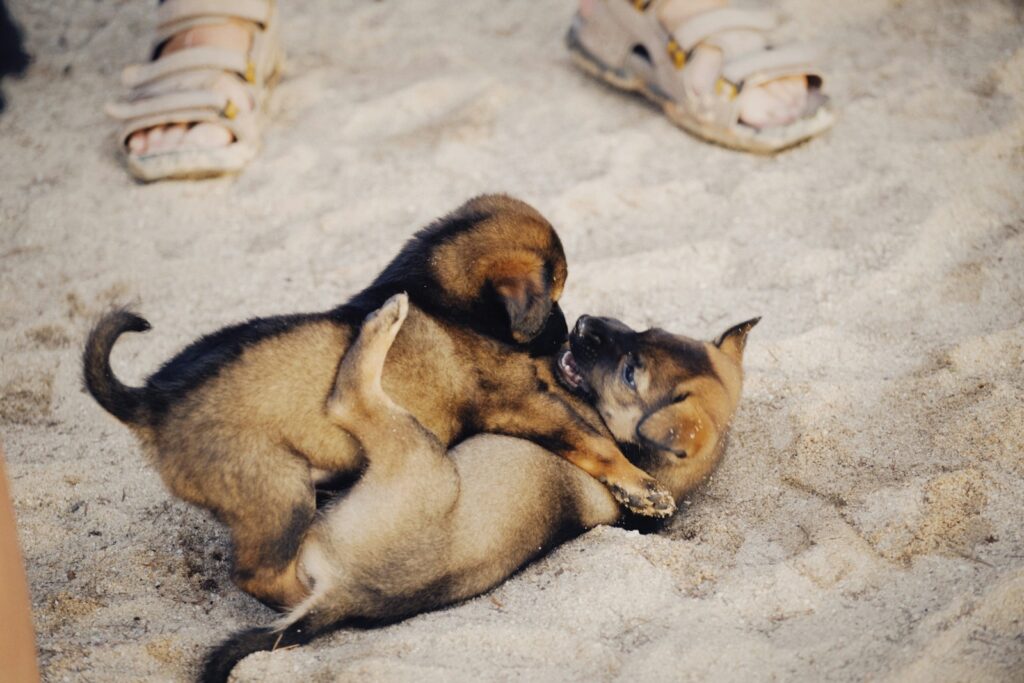
Photo by Alexey Demidov on Unsplash
Common Mistakes to Avoid During Puppy Stages
Overprotecting puppies during critical socialization periods creates fearful, anxious adults. Keeping your puppy safe is important; appropriate exposure to new experiences builds confidence and resilience.
Creating Your Puppy Development Action Plan
Start with your puppy’s current age and focus on stage-appropriate activities. Young puppies need gentle socialization and basic care, while older puppies benefit from structured training and increased responsibilities.
Schedule regular veterinary checkups to monitor growth and development. Your vet can identify potential problems early and adjust care recommendations based on your puppy’s progress.
Document your puppy’s milestones through photos and notes. This record helps track progress and provides valuable information for future veterinary visits or training adjustments.
Ruff House Dog Training
Inconsistent training confuses puppies and slows learning progress. All family members should use the same commands and expectations to provide clear communication.
Skipping puppy training classes deprives dogs of structured learning opportunities and socialization with other puppies. Professional guidance helps new puppy parents avoid common training mistakes.
If you’re feeling overwhelmed by puppy development or facing specific behavioral challenges, remember that professional help is available. At Ruff House Dog Training, we specialize in helping families navigate the complexities of puppy development and create well-behaved, happy dogs.
We offer a 6-week obedience program, which is good for dog parents who have noticed their dog is using the bathroom in the house, chewing shoes, nipping with sharp puppy teeth, and barking.
“My dog is fine until he sees another dog.” “My dog listens when we are in the house, but as soon as we go outside, I have no connection with the dog.” This is what we often hear. Of course, we know every dog is different; that’s why we offer a customized training program.
Our experienced trainers understand the unique needs of each developmental stage and can provide personalized guidance to address your specific concerns. From basic puppy manners to complex behavioral issues, we’re here to support you and your puppy throughout this important journey.
Ready to give your puppy the best possible start in life? Contact Ruff House Dog Training today to schedule a consultation and discover how professional guidance can transform your puppyhood experience from stressful to successful.
Check out their website to get a FREE copy of the newly released e-book ‘Ruff To Ready’ by head trainer Ryan at Ruff House Dog Training to aid you in this training process!

Setting Your Puppy Up for Lifelong Success
Understanding puppy development stages empowers you to provide appropriate support throughout your dog’s growth journey. Each stage presents unique opportunities to shape your puppy’s future behavior, health, and happiness.
Remember that individual dogs develop at different rates. Some puppies advance quickly through stages, while others take more time. Focus on providing consistent love, training, and socialization rather than comparing your puppy to others.
The investment you make during these critical early months pays dividends throughout your dog’s life. Properly raised puppies become confident, well-behaved adult dogs who bring joy and companionship for years to come.
Start implementing stage-appropriate activities today. Whether you’re preparing for a new puppy or supporting your current pup through a challenging phase, understanding these developmental milestones guides your decisions and strengthens your bond with your furry family member.

